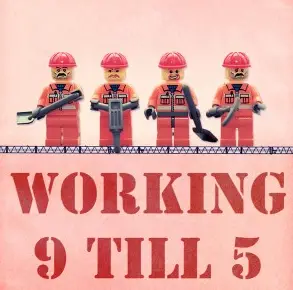I think the decision
was made for us Christian, by the necessity to survive! Even in the
most abundant environments, with enough fruit, vegetables and game
for all, it was necessary to hunt and gather most days, and on
off-days to make shelters, weapons and clothes, and to cook and
preserve food. If we had only stuck to this, at least we would not
have had the misery of agriculture to grind us down!
Of course agriculture
worked in respect of increasing food security (and population), and
ultimately led to a position where we could indeed have some people
idle, or some days off. Putting aside the obvious abuse of these
surplus bodies by warlords and priests (themselves necessary to
protect and organise the new economy), in essence the redundant
bodies (the 'agricultural surplus') now had to exchange something for
their food. They could be soldiers, book-keepers, craftsmen (making
agricultural tools or weapons for example), or if they were lucky
they could be bards or artists as people looked beyond subsistence
for their satisfaction. If they were unlucky they were the abused –
slaves.
Following the
industrial revolution and increasing agricultural efficiency,
non-subsistence exchange went through the roof and power shifted from
those who controlled land to those who controlled 'capital' or
'money' (the tokens used to value units of surplus human time, and
the things they would exchange for it). I think the main reason most
of us end up exchanging our surplus on the same 5 or 6 days a week,
is because it make sense in most cases for us all to be doing it at
the same time!
It is worth noting that
during the hunter-gatherer period, Greater Europe could barely
support a population of less than one million; at the peak of the
pre-industrial era that figure had risen to around 200 million; and
we are now looking at over 700 million. How is that? In a word,
productivity – how much value we attach to each unit of surplus
time, and how much we can do with it.
If you are clever,
lucky and brave enough, there is nothing to stop an individual in a
modern regulated economy from coming up with an idea, seeking
'capital' and seeing it through to being successfully exchanged for
the products of other's time - providing us wage slaves with the
means to exchange our own time for it's current value in tokens. If
that individual can now escape from the rat-race, good luck to her!
For the rest of us,
it's 5 days a week or nothing :-(
